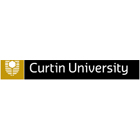Bachelor of Science (Physiotherapy) (Honours)
Bachelor of Science (Physiotherapy) (Honours)
In this course, you’ll learn how to prevent, treat and manage physical injuries and assist people of all ages with musculoskeletal conditions and chronic health conditions. You’ll graduate with an integrated honours-level qualification, ready to make a difference as a physiotherapist or to continue your studies as a researcher in…
Categories
COURSE DESCRIPTION
In this course, you’ll learn how to prevent, treat and manage physical injuries and assist people of all ages with musculoskeletal conditions and chronic health conditions. You’ll graduate with an integrated honours-level qualification, ready to make a difference as a physiotherapist or to continue your studies as a researcher in a field of physiotherapy.
Your first year is interprofessional, giving you the skills you need to work as part of a dynamic healthcare team, while learning about the physical, structural and physiological aspects of human form and movement.
In the following years, you’ll study musculoskeletal, cardiopulmonary cardiorespiratory and neurological sciences, as well as gerontology, paediatrics, gender health issues and pain management.
Throughout the course, you will learn how to select the best treatment option by analysing the available research evidence, the perspective of the person and the heath environment they are in.
You’ll become proficient in treating acute and chronic conditions and disabilities using hands-on treatment, prescriptive exercise and lifestyle advice. You’ll also build essential soft skills, such as empathic listening to help accurately diagnose an issue, problem-solving to address clinical obstacles, and reflective practice to critically analyse evidence, and monitor the success of your management strategies.
To put your skills into practice, you’ll develop your practical skills in laboratory classes and complete 1,100 hours in supervised placements in hospitals and community settings, including those in rural and remote locations.
You will also become part of a research group with your peers in your third and fourth years, and work to complete and potentially publish a small research study under staff supervision.
Please refer to the handbook for additional course overview information.
What jobs can the Physiotherapy (Honours) lead to?
Careers
Physiotherapist
Physiotherapy researcher.
Industries
Education
Government
Health management
Hospitals
Local community practice
Nursing homes
Rehabilitation centres
Research
Schools
Sports organisations.
What you’ll learn
Ethically use research-informed / evidence-based physiotherapeutic strategies for individuals and groups across the lifespan
Competently and confidently apply and lead physiotherapeutic practice in diverse and changing environments and across a range of practice areas for improved healthcare outcomes at individual and/or group level
Effectively communicate with individuals and groups with diverse cultural, linguistic, ability, or gender perspectives, providing education and advocacy
Competently and innovatively use digital technologies that enhance healthcare delivery
Be curious, creative and responsive to emerging evidence and practice change, and engage proactively in lifelong learning
Demonstrate awareness of and an ability to respond to the national and international healthcare environment and broader healthcare priorities
Demonstrate cultural capability to improve healthcare outcomes for Aboriginal and Torres Strait Islander peoples
Work collaboratively with a range of stakeholders in interprofessional teams to achieve optimal client/patient outcomes
Professional recognition
On graduating you can apply for registration with the Physiotherapy Board of Australia and membership of the Australian Physiotherapy Association and Australian Health Practitioner Regulation Agency (Ahpra).
REQUIREMENTS
Students from different countries should have qualifications equivalent to Australian Year 12 and a scaled mark of at least 50 in English, Literature, or English as an Additional Language or Dialect.
IELTS Academic (International English Language Testing System): Writing: 7.0; Speaking: 7.0; Reading: 7.0; Listening: 7.0; Overall band score: 7.0
EDUCATIONAL INSTITUTION
Curtin University is Western Australia’s largest and most culturally diverse university with Australia’s third largest international student population. Around 60,000 students from more than 130 countries study a Curtin degree, at locations including Perth, Margaret River, Kalgoorlie, Sydney, Malaysia and Singapore. Our cultural diversity adds a rich and valuable dimension to the campus atmosphere, preparing all graduates to live and work effectively in an increasingly global environment. We offer a range of industry-aligned undergraduate and postgraduate courses in business, humanities, health, engineering and related sciences. We also have a long-standing focus on Aboriginal and Torres Strait Islander education and culture, supported by our Centre for Aboriginal Studies.Curtin is widely recognised for its practical research that is focused on solving timely, real-world problems. In recent years our research activity has grown significantly, driving our rapid rise up the international university rankings.As a university that never settles, we will continue to develop existing partnerships and establish new ones in areas relevant to our research and teaching.




